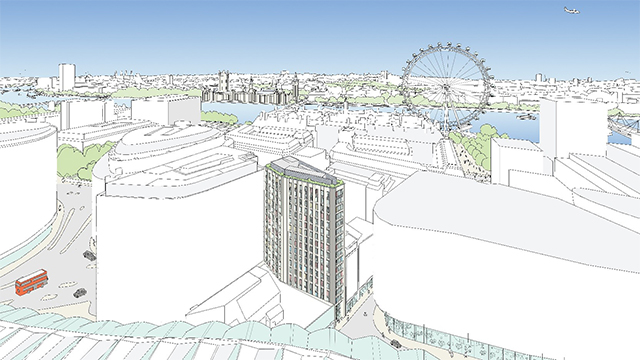COMMENT I think there was a day once, a long time ago during my zealous policy wonk period, when I could have read 332 pages. But I’m pathologically incapable now. Luckily there is a summary. For good measure – I know you would expect nothing less – I took the precaution of meeting with a number of senior officials from the department prior to the launch of levelling up last Wednesday, so I vaguely knew what to expect.
I feel for Michael Gove. The most able person in the government, by a country mile, was hobbled from the start. The levelling up mission may have been the central plank of the 2019 election manifesto, but he didn’t get to grips with it until September 2021, by which point expectations were off the scale. And then it didn’t really stand a chance of getting any bandwidth against the psychodrama of misrule currently raging in Downing Street.
Worse still, all the levelling up spending commitments had already been announced in the Autumn Statement back in October, so it now doesn’t have the advantage of announcing any new money (and the money that is on offer does not even recompense places for funds they’ve lost since 2016). So not the most auspicious of conditions.
And there is still not a soul in the country who can tell you what “levelling up” actually means.
And yet, and yet. “Levelling up” strikes a chord. And not just with folk in the North of England. Instinctively, our industry likes it. The property sector wants to give it a chance. The real estate chatterati think it is sound. This instinct is backed by hard-nosed economic thinking which points to the UK being the most centralised economy in the Western world, with all the concomitant dysfunction that this entails.
Smart peeps point to the economies of some of our competitors (Germany always the first case cited), which can boast a range of regional cities thrusting forward, rather than our own out-dated model of one behemoth global city, with a third-world country hanging off its arse (please don’t write in, you lovely people from Birmingham and Manchester, you know I am caricaturing to make a point).
Healthy dose of cynicism
So, out of all the blah about “five pillars” and “12 missions” in the white paper, what is there that is tangible for us? I am afraid I take the “King’s Cross-style developments” and “20 towns” stuff with a dollop of cynicism (having first worked on what became the King’s Cross development in – yikes – 1988) save to state the obvious, for anyone with landholdings in the chosen towns, it offers you a welcome peg on which to hang your hat.
More concrete is the announcement of 40% uplift in R&D budgets and the creation of “cluster hubs or “MIT-type places” in parts of the country such as Greater Manchester, the West Midlands and the Glasgow city region.
That sounds pretty good to me. However, Cassandra does need to point out one obvious casualty: the OxCam corridor. This despite all our best efforts – of EG and Bidwells in particular – and the fact that it enjoys an excellent spatial strategy. Big mistake in my view. And not just in terms of the waste of time, energy and thinking: you use your winning economic platforms to underpin your less successful places. But, hey, OxCam is simply too southern and elitist for levelling up. That’s politics for you.
Bottom up building
Back to the 332 pages: well it rehashes a lot of old stuff (sometimes word for word, as I understand it. All I can say is you wouldn’t get away with that if you were an undergraduate in any respectable university). Notably, it leans hard on the thinking of Greg Clark and Lord Heseltine in their push for devolution and local growth (rumour has it that Andy Haldane carried around the executive summary of Lord H’s Empowering English Cities for weeks during the drafting).
But so what? It is none the worse for that. You build an economy, not from the top down, but from the bottom up. The challenge for us in the property industry is to pick those places that are going to be winners (might I suggest Ipswich? Just a random thought, honest…) and to get weaving with their host local authorities.
The Levelling Up white paper is far too long (arguably 330 pages too long) and perhaps a tad fanciful: hilariously, there are more mentions of medieval Italy than there are of Leeds. But its intentions are honourable and laudable. And right. As ever, the proof of the pudding is in the eating. If the DLUHC Levelling Up Unit and its outriders in local government start to work concertedly with us, their friends in the real estate industry, to land this policy properly, then there is all to play for.
We do wealth creation. Enlist our help in building these local economies, bottom up. Give us some encouragement – most of all some certainty – and we will put our shoulders to the wheel.
Jackie Sadek is chair of Ipswich Vision. She is author, with Peter Bill, of Broken Homes: Britain’s Housing Crisis: Faults, Factoids and Fixes











